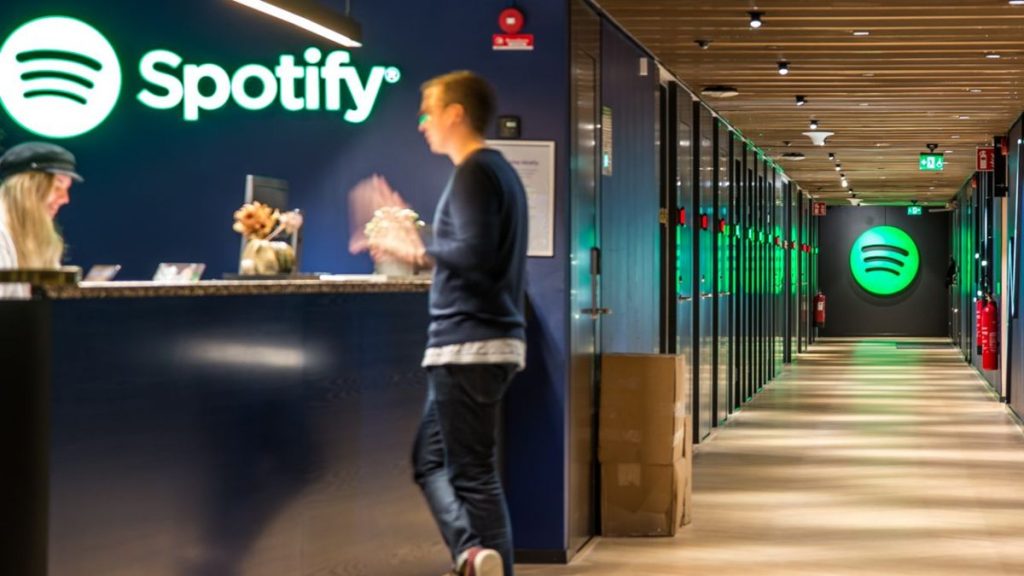Spotify Says Its Employees Aren’t Children — No Return to Office Mandate as ‘Work-From-Anywhere’ Plan Remains

Photo Credit: Spotify
Tech giants like Amazon and Dell are giving their employees back to office mandates. But Spotify says it will continue its flexible remote work arrangement because employees “aren’t children.”
Spotify first introduced its flexible remote work policy in February 2021 as countries began easing restrictions due to COVID-19. Now with the pandemic in the rear view mirror, many companies are trying to get their employees back into the office for five days a week.
“You can’t spend a lot of time hiring grown-ups and then treat them like children,” Spotify’s Chief Human Resources Officer (CHRO) Katarina Berg says. Berg says she understands the return-to-office mandates for companies who want to “go back to what they know,” but Spotify has yet to encounter a reason to enforce a return-to-office mandate for its many employees.
“We are a business that’s been digital from birth, so why shouldn’t we give our people flexibility and freedom?” Berg asks. “Work is not a place you come to, it’s something you do.”
Spotify says it has noticed no impact on productivity or efficiency since moving to a more distributed way of working. It has offices located in cities across the globe and in most major cities in the United States and Europe. Spotify’s chief concern is about the potential impact remote work can have on collaboration and innovation. To that end, it has begun working with the Stockholm School of Economics to conduct research into how remote work impacts collaboration and innovation.
“It is harder and we all struggle to collaborate in a virtual environment,” Berg says. “But does that mean that we will start forcing people to come into the office as soon as their is a trend for it? No.” Spotify may look to downsize its real estate footprint, but it is retaining its office space. Spotify encourages employees to come in to the office during its ‘core week’ where each team is expected to come together and collaborate and discuss strategy.
“By having one week where small teams travel to meet up, we can energize people and still have a low impact on the climate,” Berg continues. “It has worked really well. While most CEOs were previously interested in the product and finances, they now realize you can’t develop a great product if you don’t have great people. That is why more CEOs are trying to understand what motivates people.”
Welcome to Billionaire Club Co LLC, your gateway to a brand-new social media experience! Sign up today and dive into over 10,000 fresh daily articles and videos curated just for your enjoyment. Enjoy the ad free experience, unlimited content interactions, and get that coveted blue check verification—all for just $1 a month!
Account Frozen
Your account is frozen. You can still view content but cannot interact with it.
Please go to your settings to update your account status.
Open Profile Settings